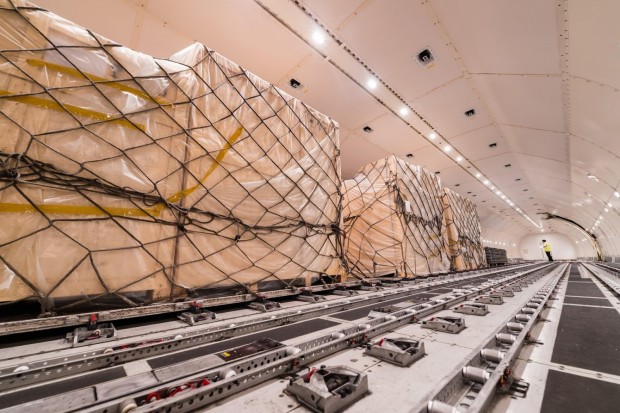A Look at the Future of the Air Cargo Industry
By Staff Reporter
Apr 27, 2020 04:48 PM EDT
Apr 27, 2020 04:48 PM EDT

The state of the global economy depends on our ability to ship produce, products and goods around the world, safely, quickly, and in the most cost-effective way possible. In a world where online shopping is taking over from bricks and mortar retail, air cargo has become more popular than ever, shipping millions of packages across the world at the click of a button - responsible for transporting around 35% of the world's trade value. But the future of air cargo doesn't simply refer to our preference for exotic fruits, American sweets and Italian handbags.
Vaccines and medicines make up some of the most crucial air cargo, using specially designed planes that are able to transport these vital life-saving products in their optimum environment, using temperature control and cutting-edge technology. Likewise, electronic parts are able to be shipped quickly to solve company-wide issues; motor vehicle goods can be sent to fix a particularly complex problem on the other side of the world; and even flowers and other living plants can be shared between their native country and others.
Having established the value of the air cargo industry on the way we live our lives today, what exactly can be said about its future?
The first thing to note is that, as the population in many countries grows, so demand also grows - with countries ramping up their individual needs without any way to meet them, other than to rely on the support of the global economy. This implies that the future looks good for the air cargo industry. After all, air travel will always be the quickest and most cost-effective means of transporting large quantities of goods; and as a population of humans, we will always want and need what cannot be grown or made in our own country.
But there are challenges that come with this. Environmental concern is one such factor which is already beginning to re-shape the way we spend our money and travel, and while the air cargo industry may be necessary, it is also massively unfriendly to the environment. The truth is, people are choosing to travel less, with air travel seen as especially bad for the world, leading to a rise in the amount of people buying locally sourced, locally grown produce. And yet, worldwide demand continues to grow, encouraging a line of thought that suggested air cargo should review their environmental output and counteract it in some way.
The fact is, ecommerce and online shopping is on the rise, and as such is set to put the air cargo industry in good stead for the years ahead. If the industry can keep up with global tensions, an increase in mandatory regulations and the continuing pressure of pricing strategies, it should survive and thrive.
It means that air cargo will continue to grow in value, accounting for a higher percentage of the total number of flights made every year, and that much of this is due to the rise in ecommerce. Boeing's World Air Cargo Forecast 2018-2037 forecasts that retail ecommerce will be worth £3.9 trillion by 2021, with Amazon alone accounting for a huge percentage of that.
Fast catching up, the Chinese markets are set to increase their use of the air cargo industry in line with Western growth, with an anticipated requirement of around 200 further cargo planes over the next two decades.
Perhaps the most uncertain factor right now is the effect of global relations on air cargo and overseas trade, as well as the unprecedented arrival of COVID-19; which has grounded all commercial flights and ceased high street trading for all but the most essential of retailers. However, with much of the ecommerce journey of customers unaffected by this, the air cargo industry is as busy as ever and looks set to continue to rise - provided the world leaders can maintain an open and well-connected economy.
When it comes to the future of the air cargo industry, as with many sectors, innovation is fundamental to continued success, with the exploration of self-flying planes, faster travel times and larger plane capacity all on the cards for future development. The increase in the number of drones available has redesigned the way that deliveries are made, with an unprecedented demand on a technology that harnesses the power of drone technology to provide nationwide delivery faster than ever. Meanwhile the rise of Artificial Intelligence begs questions about the way air cargo is handled from an administrative angle, calling on the need to digitize and future-proof the processes that handle each flight, ensuring the industry can survive an inevitable rise of competitors and start-ups who promise better tracking information and cheaper pricing.
Is it possible to keep up? Who knows, but with the future of air cargo set to adapt to newer and more demanding possibilities, the future is ours for the taking.
© 2024 VCPOST, All rights reserved. Do not reproduce without permission.
Join the Conversation